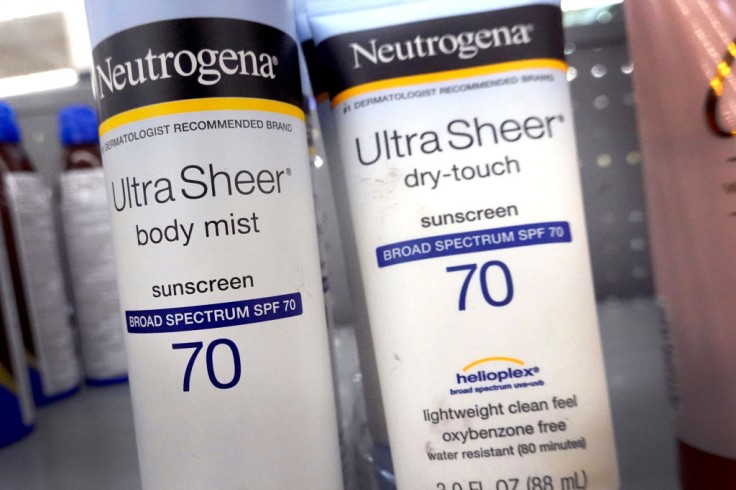
A Johnson & Johnson sunscreen recall for five different products from Neutrogena and Aveeno has been voluntarily initiated by the company after traces of carcinogen were found on them.
In a statement issued on July 14, Johnson & Johnson advised consumers to stop using all sizes of the Aveeno Protect + Refresh aerosol sunscreen and four Neutrogena sunscreens, Beach Defense aerosol sunscreen, Invisible Daily Defense aerosol sunscreen, CoolDry Sport aerosol sunscreen, and UltraSheer aerosol sunscreen.
These products are widely distributed across the U.S. through various retailers, drugstores, and grocery stores. The healthcare company also said that it would issue refunds for customers who call J&J's Consumer Care Center via 1-800-458-1673.
Traces of Benzene Found
In May 2021, Valisure, a pharmacy and laboratory in Connecticut, conducted tests and analyzed 294 unique sunscreen batches from 69 manufacturers. The company found 78 products with traces of benzene, including the five popular Johnson & Johnson products.
Read Also: Baby Stroller Maker Recalls 86,000 Units Following Injuries, Broken Noses
According to the Centers for Disease Control and Prevention (CDC), benzene is a chemical known to cause cancer with repeated use. A flammable chemical with a sweet scent, benzene is widely used in dyes, pesticides, plastics or rubbers, and synthetic fibers. In some communities, especially near industrial factories or gas stations, low levels of benzene may also be found in the air.
Benzene affects the function of the white blood cells in the body, especially with long-term exposure of about a year or more. In some cases, it is a factor in the development of leukemia.
Amid the Johnson & Johnson recall, the company also said that they are investigating how traces of the carcinogen were found in the products since they do not use the chemical for their sunscreen products.
CVS Removes Harmful Products
Following the Johnson & Johnson sunscreen recall, CVS, a popular drugstore in the U.S., has also pulled out two of its aloe vera products which were also found to have benzene. These are the CVS Health After Sun Aloe Vera and the CVS Health After Sun Aloe Vera Spray, distributed across its 10,000 outlets in the U.S.
In an interview with CBS MoneyWatch, the company said that they are coordinating with the manufacturer on "appropriate additional steps" to ensure the safety of the products.
Meanwhile, Dr. Jessica Holzer, a doctor from the University of New Haven, said that removing the products from the shelves voluntarily has been a good call to prevent the long-term consequences of exposure. She also agreed that benzene is not a typical ingredient for sunscreen.
Dr. Holzer said that people who have used the products for a short period are not likely to have an adverse reaction since the traces are not high enough to impact the body. However, she advised consumers to get a proper diagnosis if they experience symptoms like dizziness, convulsions, or irregular heartbeat after using the sunscreens named in the product recall.
Related Article: FDA To Set Mercury, Lead, and Arsenic Content Limits in Baby Food